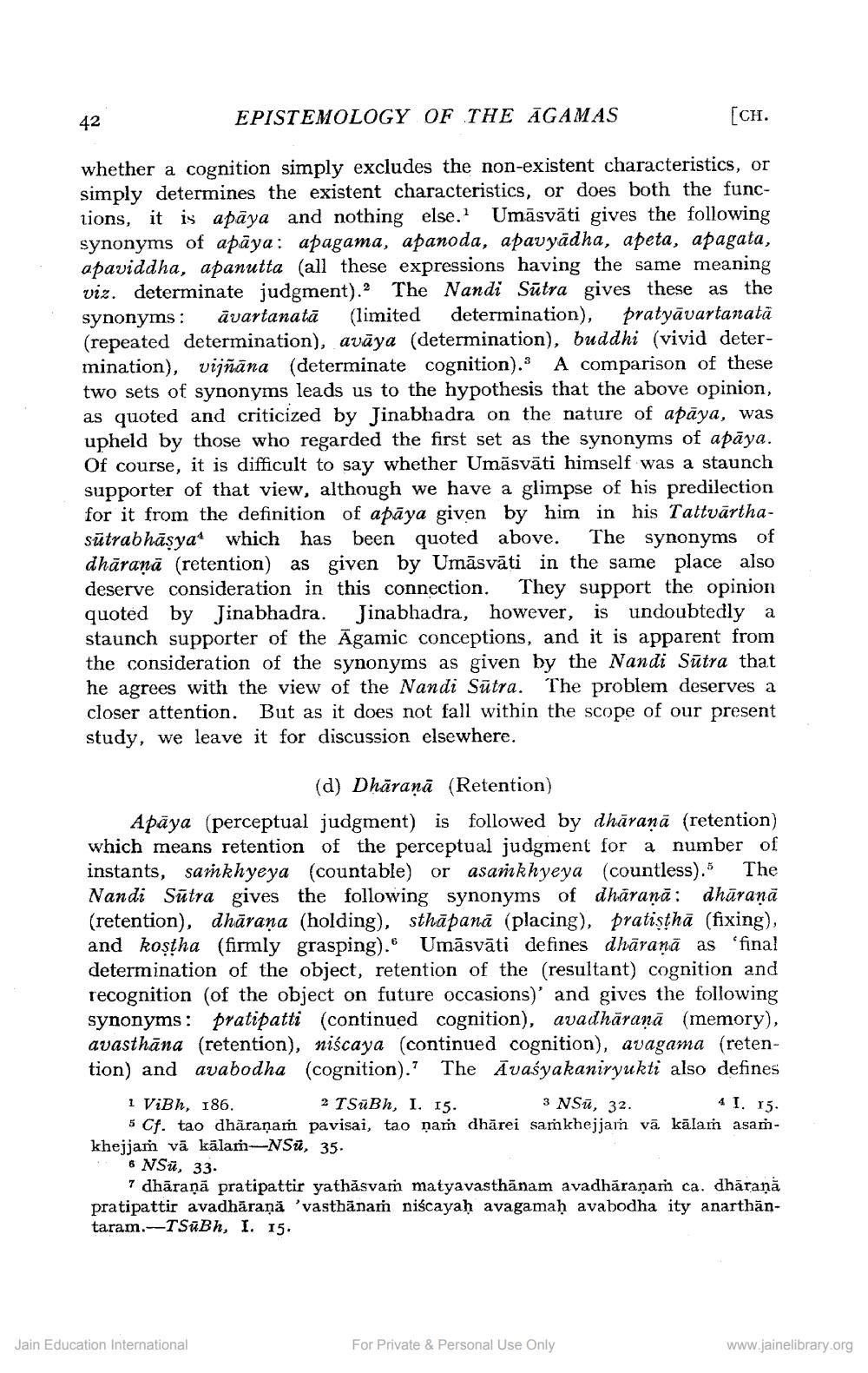________________
42
EPISTEMOLOGY OF THE AGAMAS
[CH.
whether a cognition simply excludes the non-existent characteristics, or simply determines the existent characteristics, or does both the funcLions, it is apāya and nothing else. Umāsväti gives the following synonyms of apaya: apagama, apanoda, apavyädha, apeta, apagata, apaviddha, apanutta (all these expressions having the same meaning viz. determinate judgment). The Nandi Sūtra gives these as the synonyms: avartanatā (limited determination), pratyāvartanata (repeated determination), avāya (determination), buddhi (vivid determination), vijñāna (determinate cognition). A comparison of these two sets of synonyms leads us to the hypothesis that the above opinion, as quoted and criticized by Jinabhadra on the nature of apāya, was upheld by those who regarded the first set as the synonyms of apāya. Of course, it is difficult to say whether Umāsvāti himself was a staunch supporter of that view, although we have a glimpse of his predilection for it from the definition of apāya given by him in his Tattvārthasütrabhāsya* which has been quoted above. The synonyms of dhāraņā (retention) as given by Umāsvāti in the same place also deserve consideration in this connection. They support the opinion quoted by Jinabhadra. Jinabhadra, however, is undoubtedly a staunch supporter of the Āgamic conceptions, and it is apparent from the consideration of the synonyms as given by the Nandi Sūtra that he agrees with the view of the Nandi Sūtra. The problem deserves a closer attention. But as it does not fall within the scope of our present study, we leave it for discussion elsewhere.
(d) Dhāranā (Retention) Apaya (perceptual judgment) is followed by dhäranä (retention) which means retention of the perceptual judgment for a number of instants, samkhyeya (countable) or asamkhyeya (countless). The Nandi Sūtra gives the following synonyms of dharaņā: dhāranā (retention), dhārana (holding), sthāpanā (placing), pratisthā (fixing), and kostha (firmly grasping). Umāsvāti defines dhāranā as 'final determination of the object, retention of the resultant) cognition and recognition (of the object on future occasions)' and gives the following synonyms: pratipatti (continued cognition), avadhāraņā (memory), avasthāna (retention), niścaya (continued cognition), avagama (retention) and avabodha (cognition). The Āvaśyakaniryukti also defines 1 Vibh, 186. 2 TSūBh, I. 15.
3 NSū, 32
41. 15. s Cf. tao dhāraṇam pavisai, tao nam dhārei samkhejjam vā. kālam asamkhejjam vā kālam-NSü, 35.
& NSü, 33.
7 dhāraņā pratipattir yathăsvam matyavasthānam avadhăranari ca. dhāraņā pratipattir avadhāraņā 'vasthānam niscayaḥ avagamaḥ avabodha ity anarthāntaram.--TSūBh, I. 15.
Jain Education International
For Private & Personal Use Only
www.jainelibrary.org




